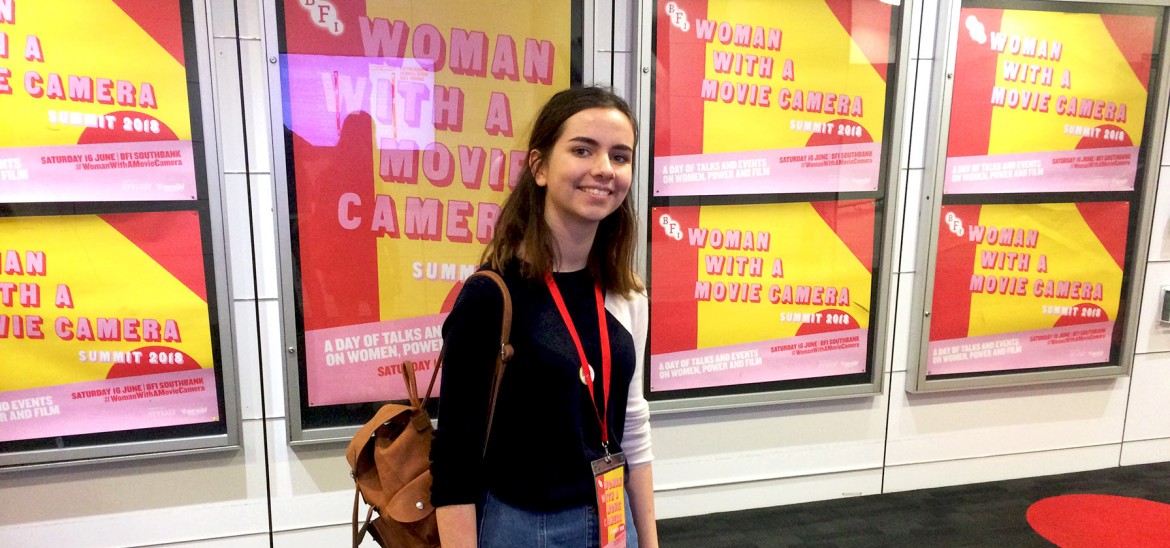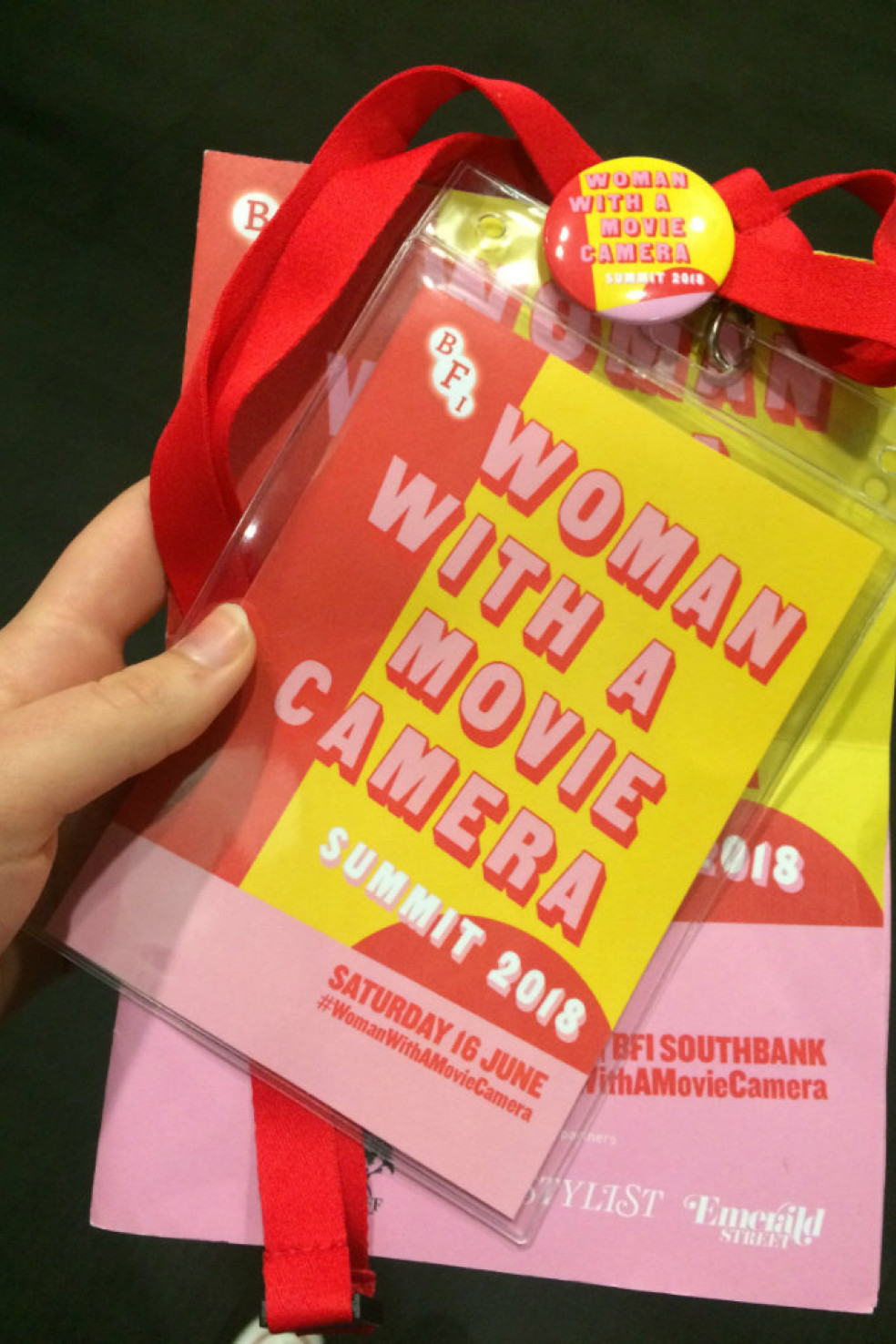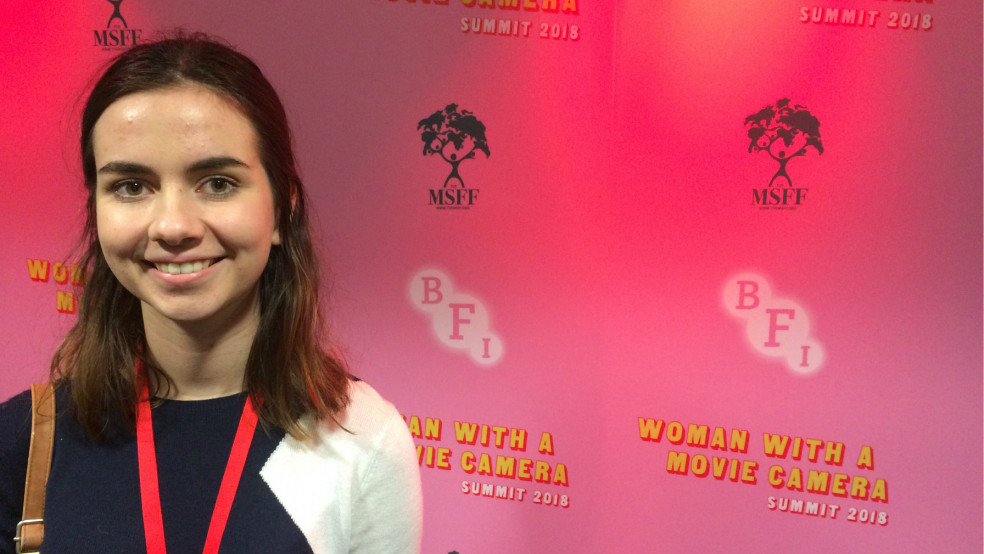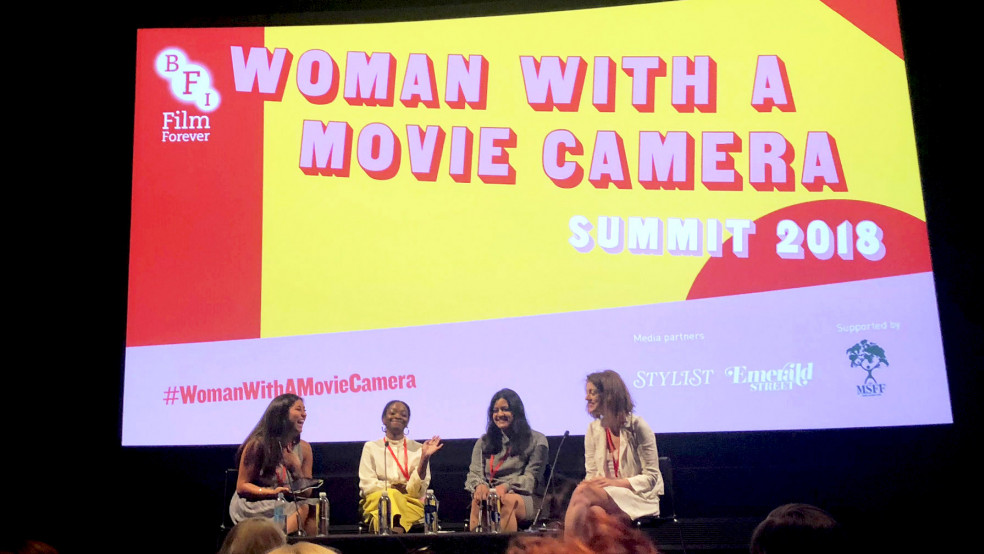Into Film Clubs
Find out everything you need to know about starting an Into Film Club.



The BFI recently held a 'Woman with a Movie Camera' summit at the BFI Southbank, which brought together inspiring speakers from the world of film and media to discuss gender representation on the screen. We sent reporter Alexa (17) along to the event, and below she recounts her perspective on this unique coming together.
Don't wait to make films, pick up a camera, investigate, make mistakes but get involved! Feeling inspired ?@bfi #WomanWithAMovieCamera ? pic.twitter.com/8URUGFWV1i
— Get Into Film (@getintofilm) June 16, 2018
I recently attended the Woman with a Movie Camera summit, a day filled with talks, events and seminars all surrounding women, power and, of course, film. There was a huge variety of speakers all hailing from different sectors of the film and TV industry, each with their own insights and stories to tell.
I found the knowledge they shared about their career progression invaluable and I hope to apply a lot of what they said to my own future career.

I attended four different seminars: Marketing Feminism, Who Runs the Set?, Blowing Up the Film Canon and A Critical Perspective. I was pleasantly surprised by the differences between the different talks and came away with a variety of new knowledge.
Hosted by Olivia Stancombe, Marketing Feminism centred around the differences between the techniques used in ‘feminist marketing' and ‘marketing feminism'. ‘Marketing feminism' was described as using marketing to try and make a film seem ‘feminist'. For example, when the all-female Ghostbusters reboot came out, despite centring around women and claiming to be ‘feminist', the marketing strategies and plot were similar to that of the original film, with little reference to ‘meaningful feminism' or making a difference for women.
Whereas in ‘feminist marketing' the marketing that takes place is actually designed to help raise awareness of feminist ideas whilst simultaneously promoting the film or media. U.S. TV drama series Orange is the New Black is a good example of this. The marketing team for the show ran an article with the New York Times about issues with the prison system and how it doesn't fit many women's needs. The article successfully promotes the show by talking about events that feature in it, but also addresses a nationwide issue in the United States. The contrast between these two types of marketing was something I'd previously never been aware of, but now that I know about it, I'll never look at marketing in quite the same way!

I then went on to attend the Who Runs the Set? and Blowing up the Film Canon talks. Both discussed the ways in which the film industry is changing but the former focused largely on how on set dynamics are changing, particularly in the wake of the #MeToo movement, whereas the latter was more about how we change the films that are considered ‘classics' and that are taught in film school to encourage more diversity.
Something I took away from both these talks is how a lot of women who entered the film industry initially entered into more admin-based roles, such as within film festival organisations. However, these women have now risen in the ranks and can give opportunities to female and minority filmmakers to have their films featured in places where they previously may not have been chosen.
The importance of this was really brought home to me when it was said that "because there's no precedent for women in film, people believe there's no market for it". With more women now entering the industry, there are now more and more opportunities for young people like myself to work with those who've gone before me, and subsequently to work together towards a fairer and more inclusive industry.

The final session I attended was a A Critical Perspective. As someone interested in film reviewing, this was really useful to me. An interesting point from the seminar was a discussion on the expectations of female and ethnic minority film reviewers to be the ones to review (and more generally to be expected to like) films directed by or about women or minorities. However, they spoke of having to deal with the fact that often they may not like a film because they cannot relate to it in the way they're expected to, which can ultimately harm their review of it. They emphasised the importance as a journalist of being objective about whatever film is being reviewed, to ensure that whoever watches it has the best chance of enjoying it and finding something to connect to, even if there is nothing in it that relates to their personal background.
So whilst it will take time to achieve the gender-balanced working ratio many desire, the activism and inspirational women that I saw during the summit gives me hope that we aren't far off achieving this. The buoyant enthusiasm and hope surrounding the current changes is infectious and I for one, am inspired to begin making and sharing my own films to share my experiences and contribute to this changing world of film.
Viewing 4 of 4 related items.

Find out more about our streaming service, designed specifically for UK schools.